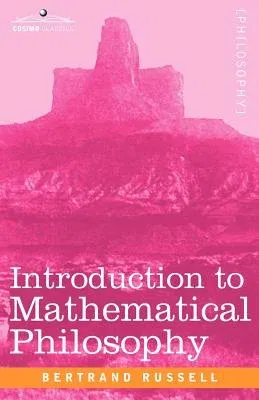Bertrand Russell
(Author)Introduction to Mathematical PhilosophyPaperback, 1 April 2007

Qty
1
Turbo
Ships in 2 - 3 days
In Stock
Free Delivery
Cash on Delivery
15 Days
Free Returns
Secure Checkout
Print Length
220 pages
Language
English
Publisher
Cosimo Classics
Date Published
1 Apr 2007
ISBN-10
1602062919
ISBN-13
9781602062917
Description
Product Details
Author:
Book Format:
Paperback
Country of Origin:
US
Date Published:
1 April 2007
Dimensions:
21.59 x
13.97 x
1.27 cm
ISBN-10:
1602062919
ISBN-13:
9781602062917
Language:
English
Pages:
220
Publisher:
Weight:
285.76 gm

